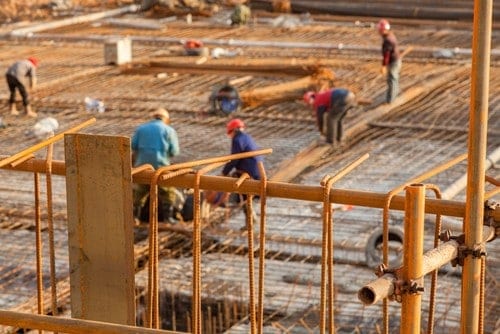On the jobsite, you’re likely to encounter many different types of machinery, each with its own set of best practices. While all equipment requires care, heavy machinery often needs extra attention. Due to the size, weight and capabilities of heavy machinery, it can be especially dangerous. Check out the tips below to avoid injuries and property damage when operating heavy machinery.
Utilize a spotter, radios and other signals as necessary
When moving equipment around the jobsite, especially where other workers are present, a spotter can be used to direct the driver away from workers, pedestrians or traffic. The spotter and driver should have radios so they may communicate hazards or changes to the route at a moment’s notice. In some instances, it may also be helpful to have an additional individual flag the route or notify local traffic of heavy machinery in the area.
Wear the proper personal protective equipment (PPE)
Certain heavy machinery requires special PPE. In addition to gloves, safety glasses and reflective gear, some machines require a face mask, hard hat or fully-covered clothing. Read the manual for the machinery, which will generally include recommendations for PPE. It’s a best practice to follow the manufacturer’s recommendations and make additions based on jobsite policies.
Secure equipment when not in use
Heavy machinery should be stored, locked and void of keys when it’s not being used. Supervisors should have a locked, offsite location where keys are stored after hours. Not only will this prevent construction theft, but it will prevent untrained workers from using the equipment. Workers are at high risk for injuries and loss if they operate heavy machinery without proper training.
Do not use equipment for leisure
Workers should not be allowed to sit in, lean on or store items in heavy machinery. Consider putting a chain or rope around the driver compartment to avoid easy access. Supervisors may also determine a penalty for workers who violate this best practice and use the equipment for leisure purposes. This protocol will prevent accidents, and keep equipment clean and in working order.
By following these simple tips, you can safely support heavy machinery on your jobsite.


